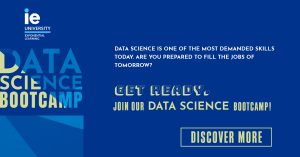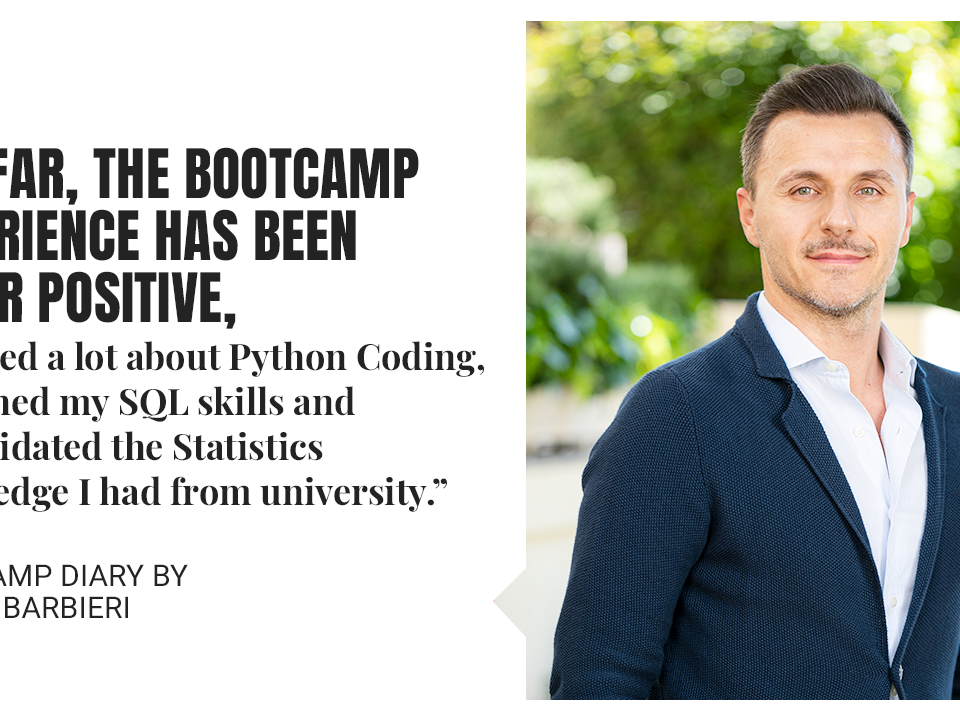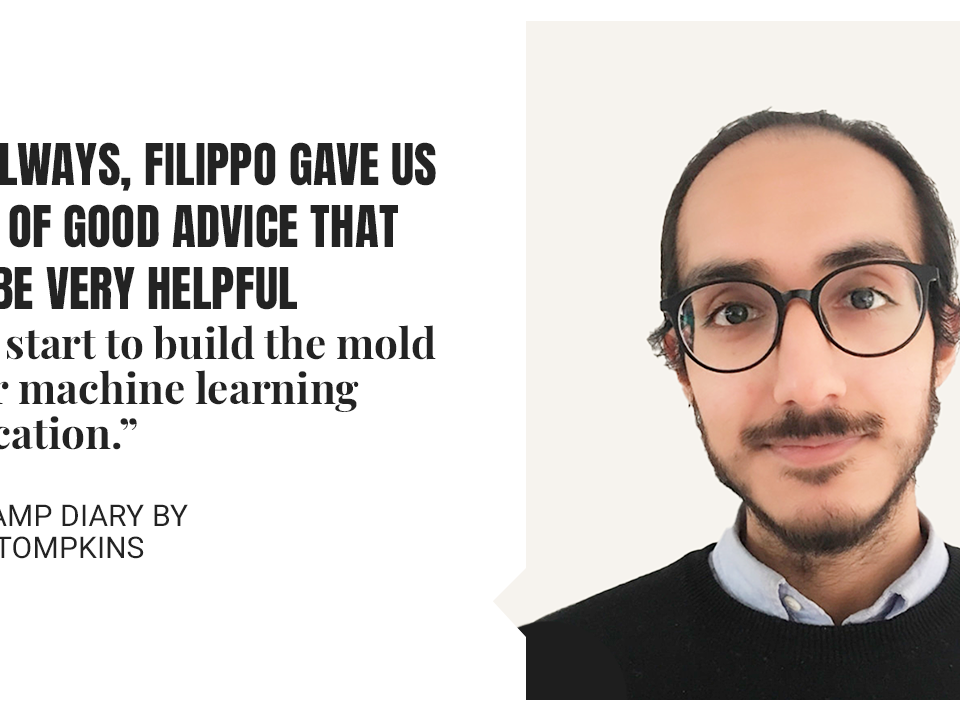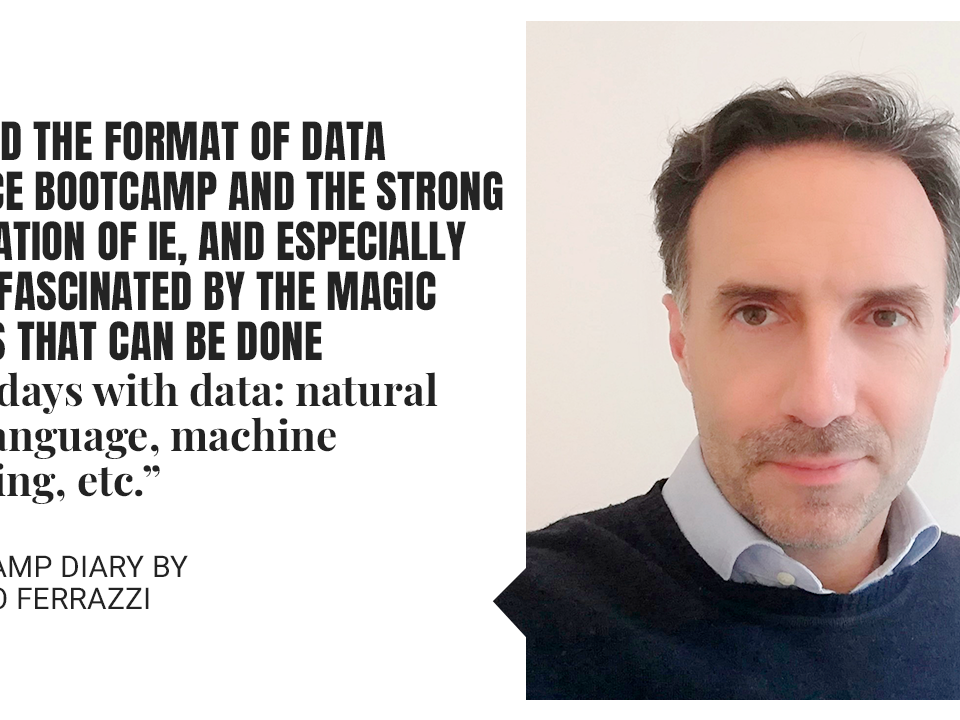LET’S OBLITERATE THE SO-CALLED “TECH VS. BUSINESS” GAP | BOOTCAMP DIARY BY ALEJANDRO BERRIZBEITIA
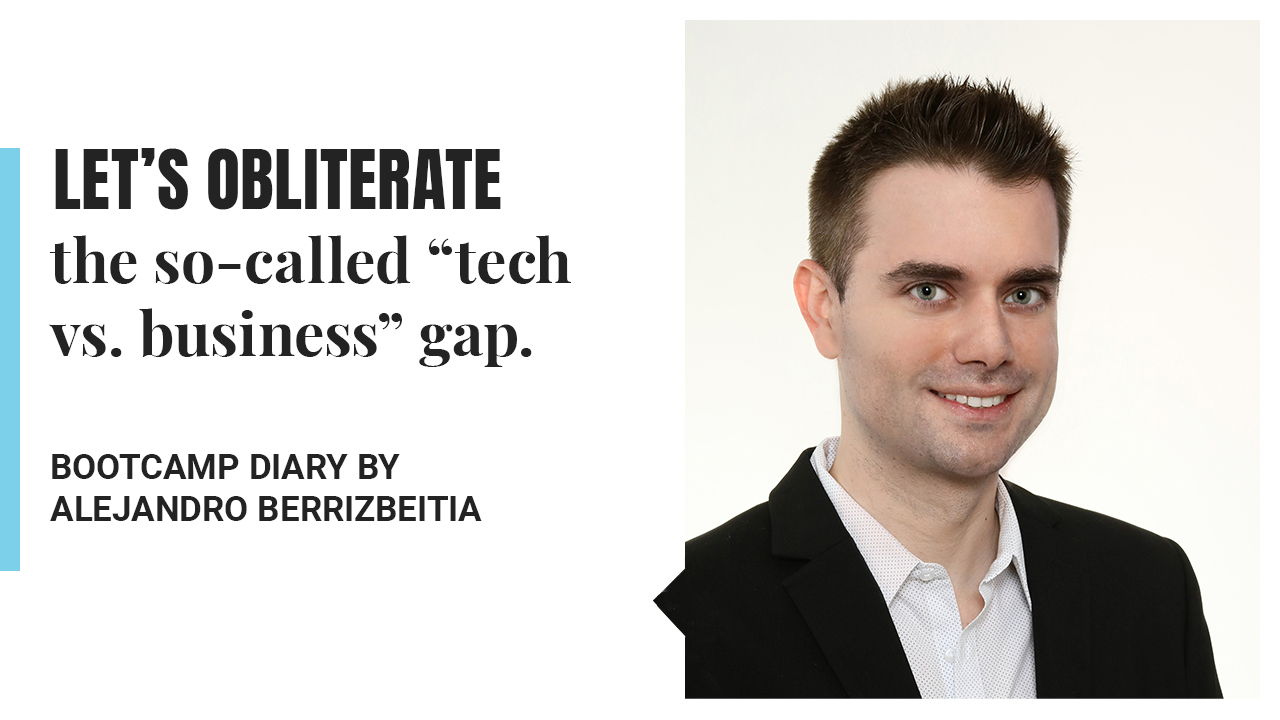
“Anyone can cook” was the motto of a famous chef in Ratatouille, a touching animated film much to the chagrin of the food critic which was the movie’s antagonist. This came to mind after a short while at IE’s Data Science Bootcamp, because I realized that – much like the motto in Ratatouille – “anyone can do Data Science”.
It became immediately apparent that this wasn’t the worn-out way of studying in which a cookie-cutter template determines if you are allowed into a long period of jumping through hoops at the pace of the academic world. Rather than that, I immediately got acquainted with colleagues and faculty both older and significantly younger, all currently active in very diverse industries. After all, who said you need to be an engineer, or be a certain age, or study in the traditional way, in order to learn science? The truth is that if you’re willing enough to put in the necessary work, then you can join the ranks of the world’s data scientists too.
We spend most of our lives making all kinds of decisions that impact our businesses, homes, health, friendships, finances, politics, etc. And Data Science is all about leveraging the power of the scientific method to improve the quality of precisely these decisions (which is possible today with help of our good friends: cheap computers and widespread data). Therefore, why is the nefarious adage of “sometimes you just have to go with your gut” still so pervasive, especially in the business world? Is it because the rigor of good decision-making is so impenetrable, or “too methodical”, or “not worth the time”, that we would rather let our biases and prejudices drive significant decisions?
Not at all. The fact is that these excuses are wearing thin—as has been extensively proven by today’s most successful companies and innovative business models. Because however much “luck” can be said to have a weight, what makes or breaks a business venture at the end of the day is the good quality of its decisions; especially in the long term.
To further illustrate this point, renowned businessperson Jeff Bezos once said to his audience of shareholders that: “… If you’ve made a suboptimal Type 2 decision, you don’t have to live with the consequences for that long. You can reopen the door and go back through. Type 2 decisions can and should be made quickly by high judgment individuals or small groups.” Which goes to show that nobody needs a PhD to improve the quality of their decisions by at least intuitively grasping the Type 1 vs. Type 2 thinking framework that is so important to the scientific community (if you still don’t know this, then Google it now!).
In the end, no one should ever be told that doing Data Science is out of their reach, the same way that no scientist should be told they cannot truly enjoy a fine poem. Likewise, labeling people as either tecchies or suits only serves to impoverish what we all can accomplish together. So if you’re reading this, whatever your background is, just let go of any prejudices you still have about supposedly right- or left-brained people and join the movement kick-started by the Data Science field for making better decisions everyday – whether it’s through a bootcamp or some other form of acquiring this knowledge. The world will be much better for it.
Indeed, at the end of Ratatouille it was the restaurant critic who ended up conceding, stating that: “Not everyone can become a great artist, but a great artist can come from anywhere”.
